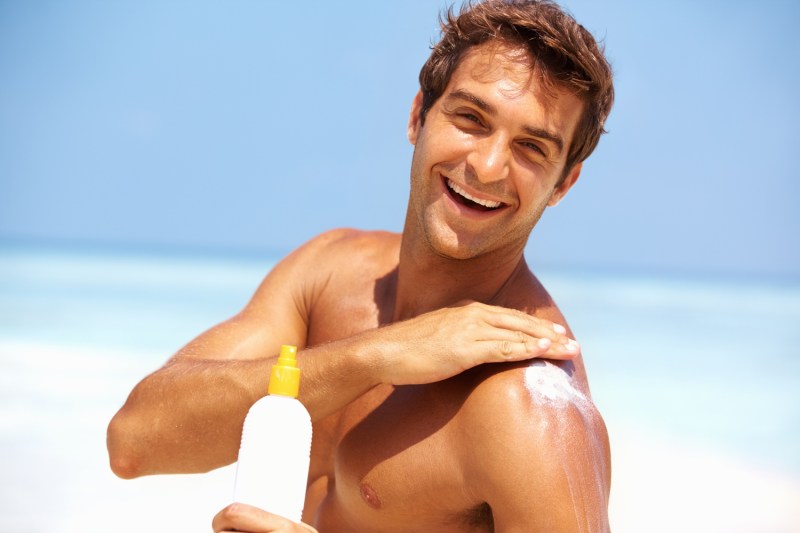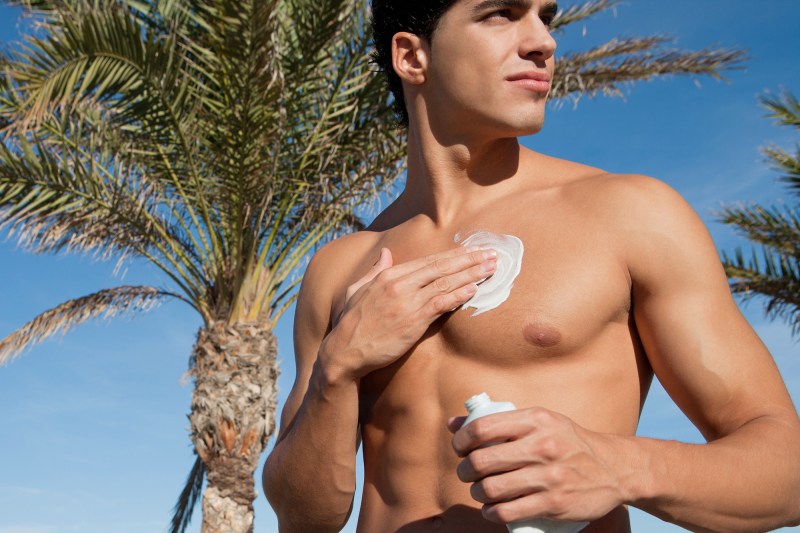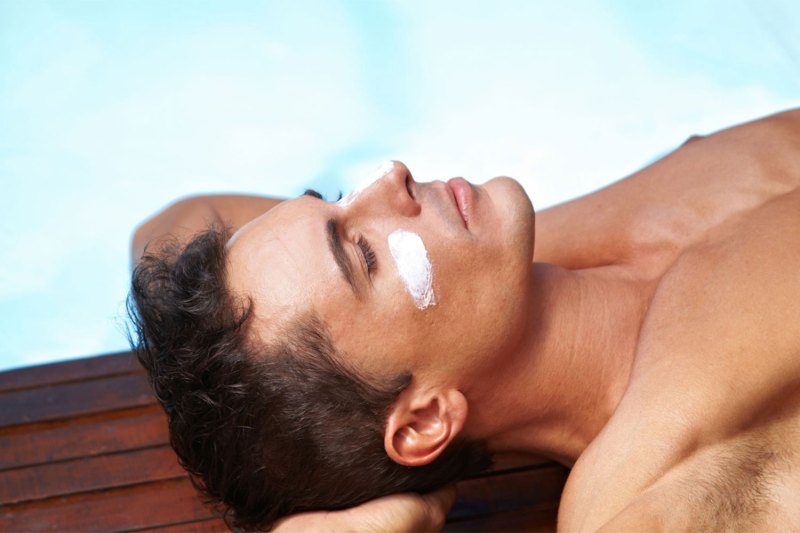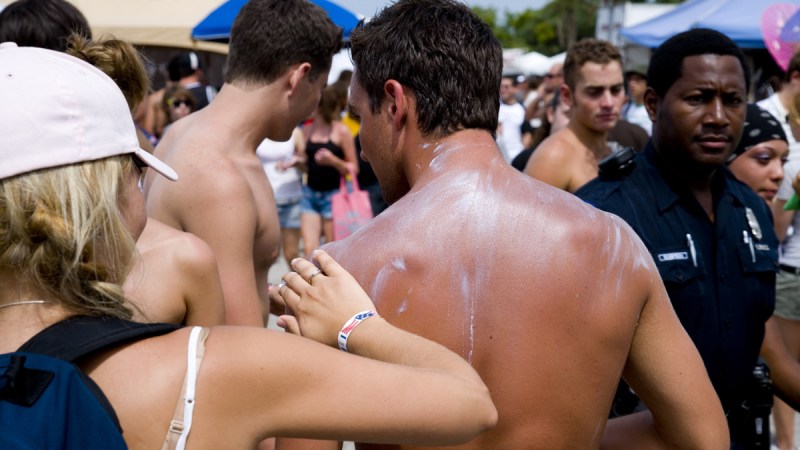[ad_1]

Like brushing your teeth, making use of sunscreen ought to be a day by day behavior. It’s the one most vital part of your skincare routine, and there actually isn’t any level in making use of costly moisturizers and serums with out first defending your pores and skin from harm. Sunscreen, the truth is, is integral to your total well being. Dr. Asmi Sanghi, a dermatologist at Mount Sinai Well being System, stated that “utilizing it correctly will help forestall pores and skin harm, untimely growing older, and pores and skin most cancers.”
Nonetheless, the overwhelming majority of individuals don’t take the correct precautions crucial for extended solar safety. “Most individuals solely apply 25%-50% of the really helpful quantity of sunscreen,” said NYC dermatologist Dr. Hadley King, MD-FAAD. “The rules are to use one ounce, that’s sufficient to fill a shot glass.”
In different phrases: Lather up. With summer around the corner, we spoke with a variety of medical specialists to cowl all of the misconceived notions you’ll have about sunblock.

Not all sunscreen is created equal
There are two several types of suntan lotion: “bodily” and “chemical,” in accordance with Doctor Naiara Fraga Braghiroli, Chief of Pores and skin Most cancers at Miami Most cancers Institute.
“The variations between the 2 are in the best way they work together with the pores and skin and the best way they mirror gentle,” she instructed us. “Bodily sunscreens work like a defend, sitting on the floor of your pores and skin and reflecting away UV daylight, whereas chemical sunscreens work like a sponge, absorbing the solar’s rays.”
Sometimes you’d wish to use a “bodily” sunscreen — one which accommodates zinc oxide or titanium dioxide. These are confirmed protected on your pores and skin and protected for the setting.
Sunscreen isn’t ‘one and performed’
This was the recommendation we heard most from our specialists: Sunblock ought to be reapplied a minimum of each two hours with a view to stay efficient. Your morning sunscreen utility received’t final all day, particularly in case you’re out within the solar for durations at a time. Biochemist and science lead at OnSkin, Valerie Aparovic defined, “The impact begins lowering as lively substances have a tendency to interrupt down over time [when] uncovered to the solar, water, or sweat.”
It’s true that greater SPF can last more, however even SPF 100 must be reapplied a minimum of a couple of instances all through the day. Aparovic said, “It’s really helpful to put on a minimum of 30 SPF, however ideally 50.”

Make-up received’t cowl it
Make-up, moisturizers, or the rest that accommodates SPF — however isn’t full-fledged sunscreen — isn’t sufficient for all-day safety. Most makeups or moisturizers include lower than the really helpful 30 SPF. Whereas they’re a pleasant additive on your solar safety, you should use precise sunscreen as effectively.
“Whereas some make-up accommodates SPF, it’s typically not sufficient to supply ample safety,” said senior guide dermatologist at RenaissanceDerm, Dr. Noor Hanif Said. “At all times apply a broad-spectrum sunscreen beneath your make-up for optimum protection in opposition to UV rays.”
The identical goes for another equipment meant to dam the face from the solar — including your sunglasses and hats.
Sunscreen isn’t just for sunny days
There are two sorts of UV gentle, and each are dangerous to the human physique in numerous methods. Ultraviolet A (UVA) rays are related to pores and skin growing older, whereas ultraviolet B (UVB) rays trigger sunburns. Nevertheless, each varieties of UV rays contribute to pores and skin most cancers.
You could put on sunscreen day by day, whatever the climate exterior. Dangerous UV rays from the solar can get by each clouds and home windows, which means you’ll be able to really feel the solar’s adverse results even indoors.
“When you received’t get a sunburn by home windows, UVA gentle can penetrate home windows,” says Dr. Leah Ansell of Treiber Dermatology. When you’re sitting at your desk in entrance of a window, you’ll nonetheless must reapply all through the day.
When selecting a day by day sunscreen, it’s vital to know what sort of safety you’re getting. Dr. Chaudhry, M.B.B.S. of Scandinavian Biolabs, instructed us, “Do not forget that SPF measures safety in opposition to UVB rays, not UVA rays, so select a broad-spectrum sunscreen to guard in opposition to each sorts.”
You’ll be able to often discover the phrases “broad-spectrum” someplace on the bottle of your favorite sunscreen, which means it affords safety in opposition to a large spectrum of the solar’s rays.

Everybody wants sunscreen
Simply since you’re not inclined to burns doesn’t imply you’re not affected by the dangerous UVA and UVB rays.
“Though darker pores and skin tones have extra melanin, which supplies some pure safety in opposition to the solar’s dangerous rays, it’s nonetheless vital for everybody to put on sunscreen,” stated Dr. Chaudhry, “Folks with darkish pores and skin also can develop pores and skin most cancers and expertise untimely growing older on account of solar publicity.”
No person is resistant to the growing older and cancer-causing properties of the solar, regardless if they’ll see visible cues or not.
Is lotion higher than spray?
It relies upon, in truth. Lotion sunscreen tends to have the next SPF than spray sunscreen, however you’ll be able to actually discover the best SPF in both type. Lotion sunscreen may be messier and really feel heavier in your pores and skin than spray sunscreen, nevertheless it additionally ensures that you’ve full-coverage safety.
It’s simpler to overlook a spot with spray sunscreen, and also you’re extra prone to need to reapply extra typically. That being stated, if you’re diligent about your sunscreen utilization, a twig will work simply nice. The truth is, you might discover that it’s simpler to proceed reapplying a twig over a lotion. On the finish of the day, use no matter you might be extra snug with and what’s going to hold you protected and sunburn-free.
Editors’ Suggestions
[ad_2]
Source_link






